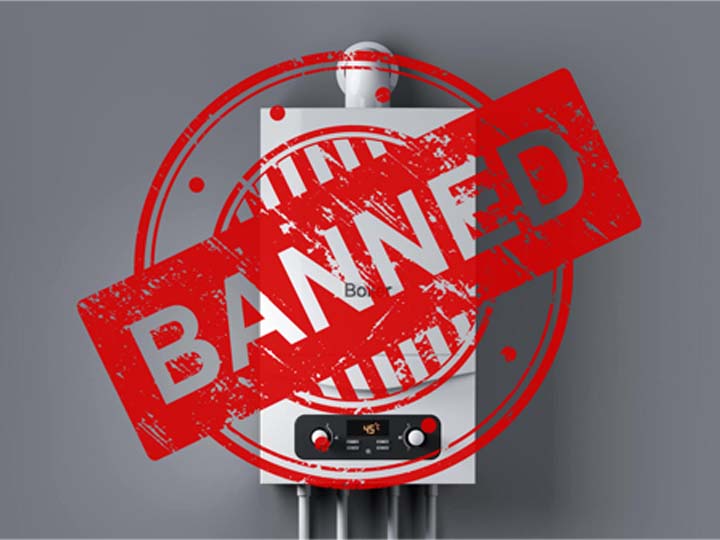
When Will Gas Boilers Be Banned?
The conversation around the “gas boiler ban” is heating up as nations globally push towards greener, more sustainable heating solutions. This initiative is part of a broader effort to reduce carbon emissions and combat climate change, marking a significant shift in how homes are heated.
In this detailed exploration, we delve into when gas boilers might be banned, the implications for homeowners, and the viable boiler replacements available, ensuring a smooth and sustainable transition.
The Timeline of the Gas Boiler Ban
Why a Ban is on the Horizon
Governments worldwide are setting ambitious targets to cut carbon emissions, with the residential heating sector identified as a key area for improvement. The move towards banning gas boilers is driven by the need to transition to more environmentally friendly heating solutions, such as electric heat pumps and solar thermal systems.
Expected Timeline
While specific timelines vary by country, many have outlined plans to begin phasing out gas boilers in the next decade. For instance, the UK has announced intentions to ban the installation of new gas boilers by 2025 in new homes, with broader restrictions expected to follow.
Is a Gas Boiler Ban Expected by 2025?
Under the Future Homes Standard initiative, it is mandated that starting in 2025, only energy-efficient heating systems can be installed in new constructions, aiming for a 31% reduction in emissions compared to present standards.
The International Energy Agency has underscored the urgency of discontinuing the sale of new gas boilers beyond 2025 to meet Net Zero objectives by 2050. The UK’s leading climate advisory bodies have suggested a total ban on gas boilers by 2033 to halt further contributions to global warming.
According to a significant report from the International Energy Agency, achieving the 2050 Net Zero goals necessitates stopping the sale of new gas boilers by 2025. Heat pumps are highlighted as a viable, more environmentally friendly alternative for heating homes in the future.
Could the Gas Boiler Ban Be Delayed Until 2035 or Beyond?
Initially, the prohibition against selling new gas boilers was slated for 2035.
Nonetheless, following pushback from households concerned about the affordability of transitioning to alternative heating solutions, there are reports that this deadline might be extended. Climate specialists have voiced concerns that any postponement could severely hinder the achievement of net zero ambitions.
Government insiders have hinted at the possibility of delaying the gas boiler phase-out to 2040 in response to worries that the transition to low-carbon heating solutions may not be economically feasible for every household.
Alternatives to Gas Boilers
Switching from a gas boiler to a more sustainable option is not just about adhering to new regulations; it’s also an opportunity to embrace more efficient and eco-friendly heating solutions.
- Electric Heat Pumps: These systems absorb heat from the air or ground outside your home and use it to heat your space and water.
- Solar Thermal Systems: Utilising solar panels to capture heat from the sun, these systems heat your home’s water.
- Biomass Boilers: A renewable alternative that uses organic materials like wood pellets to generate heat.
The Impact on Homeowners
The transition away from gas boilers will require homeowners to consider boiler replacements seriously. The initial investment in alternative heating systems can be higher, but the long-term savings on energy bills and positive environmental impact make it worthwhile.
Financial Incentives
Many governments offer grants and incentives to ease the financial burden of switching to more sustainable heating options. Researching available options in your area can significantly offset initial costs.
Preparing for the Transition
Assessing Your Home’s Suitability
Before deciding on a boiler replacement, assessing your home’s suitability for alternative heating solutions is crucial—factors such as insulation, installation space, and local climate need to be considered.
Choosing the Right Alternative
Each alternative heating solution has advantages and suitability, depending on your home’s needs. Consulting with experts like Emburys Carpentry can give you the insights needed to choose your situation best.
How Emburys Carpentry Can Help
At Emburys Carpentry, we understand the significance of transitioning to eco-friendly heating solutions. Our team of experts is ready to guide you through every step of the process, from assessing your home’s suitability for alternative heating solutions to installing and maintaining your new system.
Ready to embrace a sustainable future for your home heating? Contact Emburys Carpentry today to explore your options for boiler replacements and make the transition smooth and efficient. Let’s work together towards a greener, more sustainable future.
Frequently Asked Question
The timeline for the gas boiler ban varies by country, but many are targeting the next decade for initial phase-outs in new homes.
Electric heat pumps, solar thermal systems, and biomass boilers are among the most popular and sustainable alternatives.
Many governments are offering grants and incentives to help cover the costs of transitioning to more sustainable heating systems.
Consulting with heating and insulation experts, like those at Emburys Carpentry, can help you determine the best fit for your home’s needs and characteristics.

